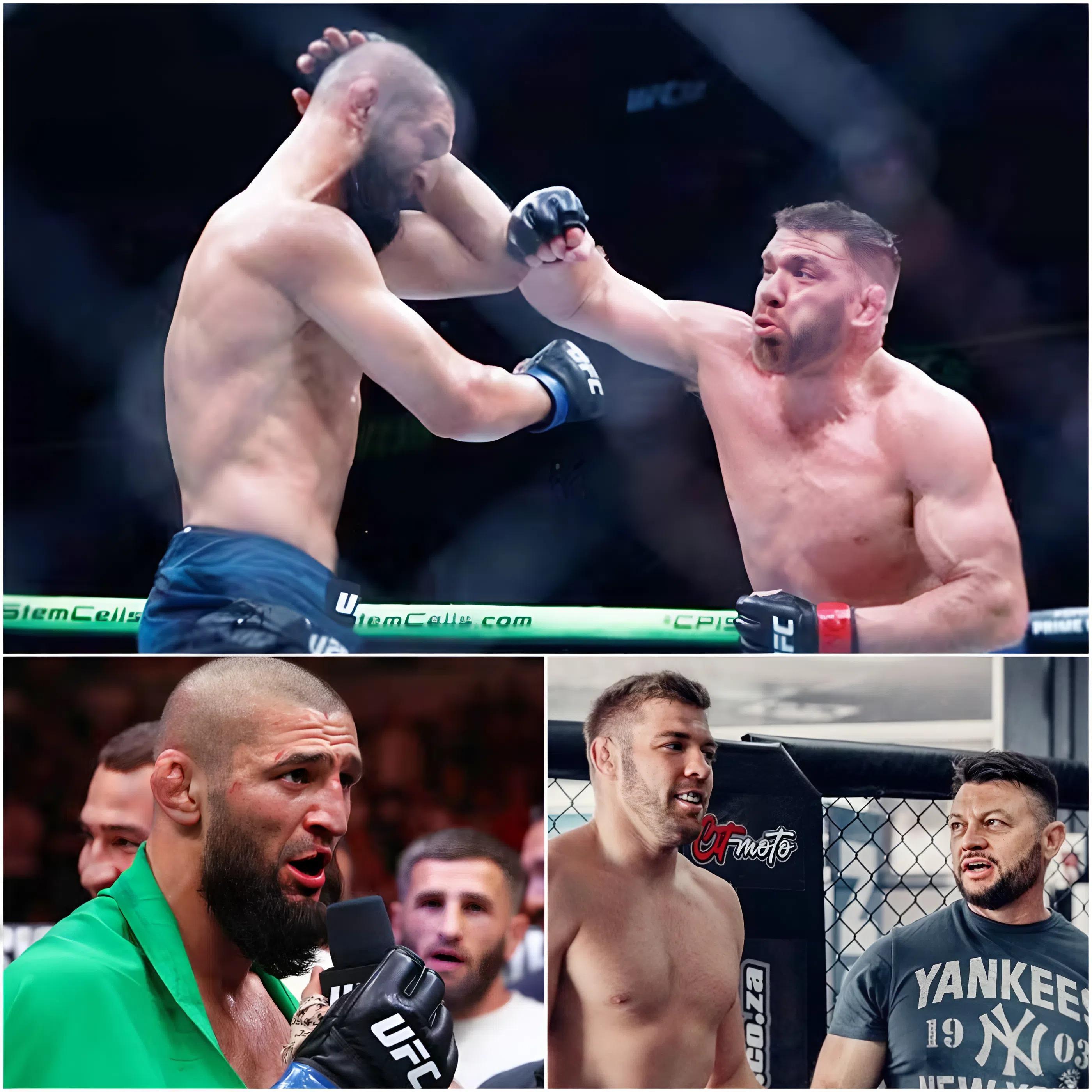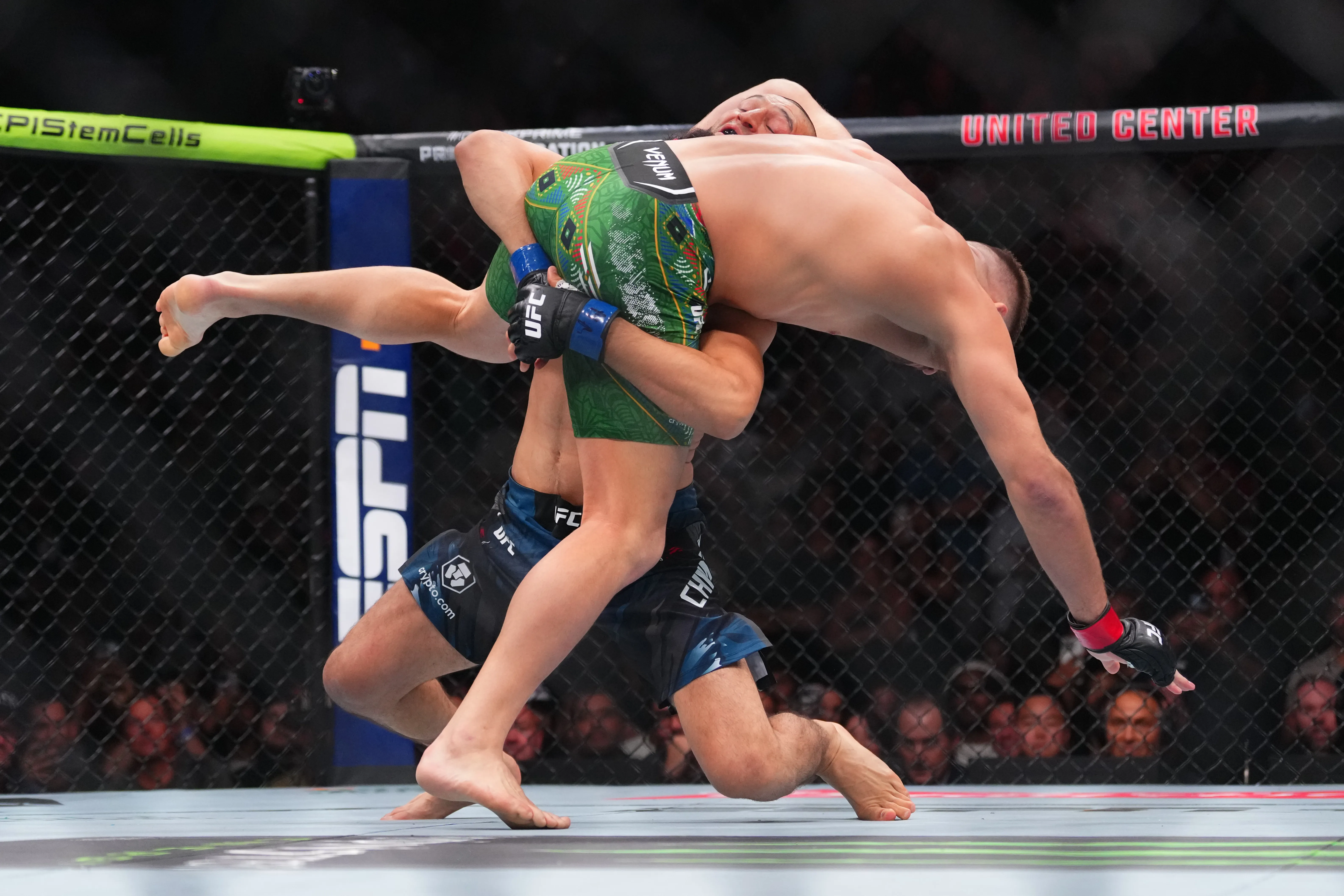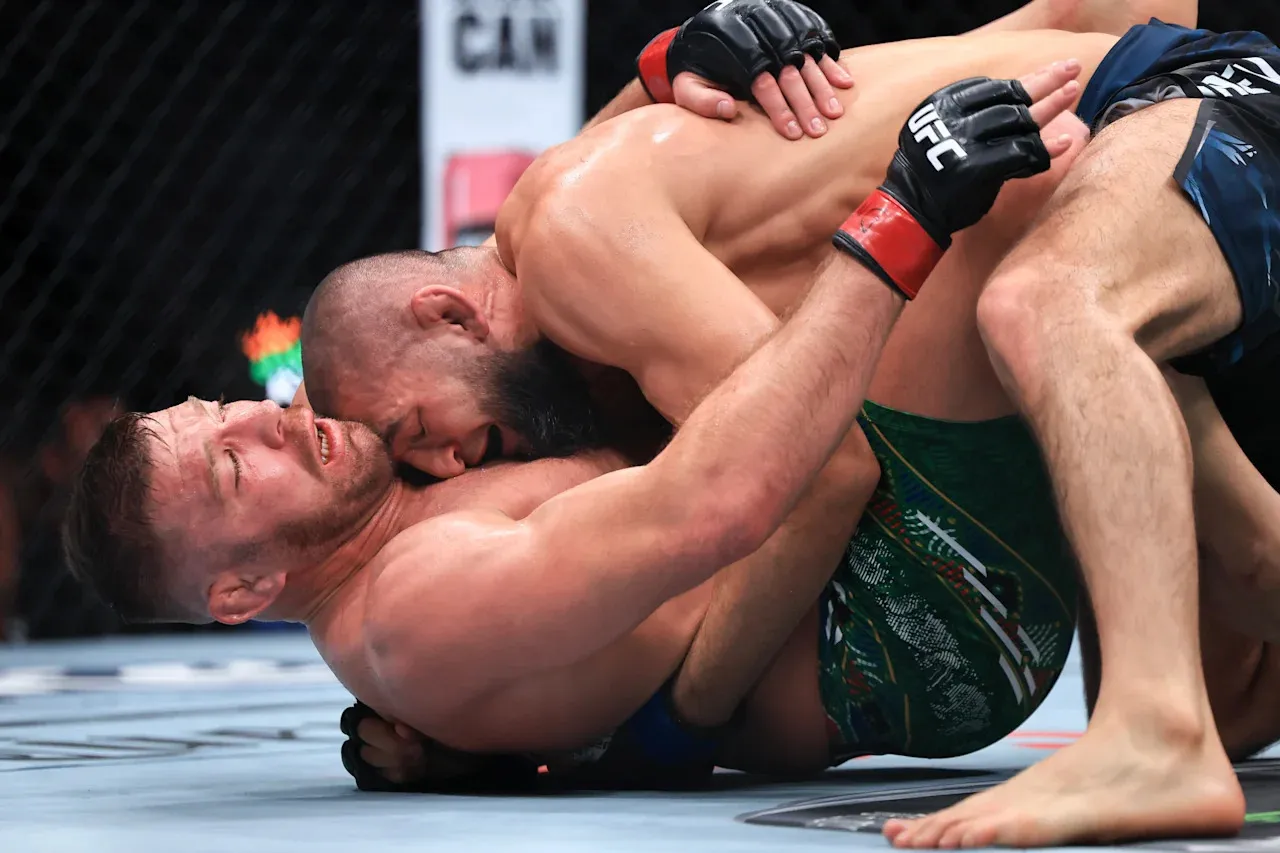The aftermath of UFC 319 continues to generate heated debate, not only because of Khamzat Chimaev’s dominant win over Dricus du Plessis, but also due to the sharp criticism voiced by Du Plessis’ head coach, Morne Visser. Despite his fighter conceding defeat in a one-sided middleweight title clash, Visser publicly questioned Chimaev’s fighting style, labeling it “safe, boring, and uninspired.” His comments have fueled an ongoing discussion in the MMA community about whether Chimaev’s approach is truly championship-worthy or merely an exercise in control.

Chimaev’s Dominant Yet Divisive Victory
In Chicago, Chimaev showcased his trademark wrestling-heavy strategy, smothering Du Plessis over five rounds with relentless pressure. The new middleweight champion threw an astonishing 570 total strikes, according to official UFC statistics, but only 37 were classified as significant strikes. While Chimaev’s ground-and-pound kept Du Plessis pinned down and unable to mount offense, many fans inside the arena expressed disappointment at the lack of dramatic moments.
Instead of roars of excitement, the crowd grew restless. Boos and jeers echoed in the venue as Chimaev focused on positional control rather than chasing a knockout or submission. For some spectators, it was the very definition of an anti-climactic championship fight.

Coach Visser’s Sharp Criticism
Visser did not mince words when he appeared on Submission Radio to discuss the fight. He argued that Chimaev’s performance, though effective, was uninspiring and robbed fans of an entertaining spectacle.
“There’s a stat that says Khamzat threw about 570 punches but only 37 of them counted as significant. He did just enough to keep the referee from stepping in. Honestly, it was a boring fight,” Visser remarked.
According to Visser, the fight’s lack of excitement was obvious early on. He noted that fans were already restless within minutes of the opening round, frustrated by Chimaev’s decision to lean heavily on wrestling control rather than attempt to finish the contest.
“Three minutes into the fight, the audience had had enough. They didn’t want to watch a match built only around wrestling and positional dominance,” Visser added.
Divided Opinions Among Fans and Analysts
While some fans echoed Visser’s sentiments, others were quick to defend Chimaev. Supporters argue that his performance was an example of pure dominance—controlling every aspect of the bout, neutralizing Du Plessis’ striking power, and never allowing the former champion to find momentum.
For these fans, winning in such a decisive manner is proof of Chimaev’s greatness. “A champion’s job is to win and hold the belt. Entertainment is secondary,” one fan wrote on social media. Still, the criticism of Chimaev’s style as overly cautious refuses to die down, with detractors pointing out that UFC champions should deliver more than just control—they should bring fireworks.
Questions About Du Plessis’ Preparation
Interestingly, Visser himself faced criticism after the bout. Some observers argued that the coach failed to prepare Du Plessis with a strategy to counter Chimaev’s wrestling-heavy attack. Others felt that his corner advice during the fight lacked urgency and adjustment.
Visser defended his role, explaining that Du Plessis felt confident despite the difficult circumstances.
“After the first round, I asked Dricus if he was okay. He said he was perfectly fine and even smiled. We knew this was a tough fight, but we’ll take the lessons and come back stronger,” Visser clarified.
This statement highlighted that Du Plessis was not overwhelmed mentally but simply unable to overcome Chimaev’s physical control and relentless pace.
The Bigger Picture for Chimaev
Regardless of how fans and coaches perceive it, Khamzat Chimaev remains the UFC middleweight champion. His victory over Du Plessis extended his undefeated run in the organization and reaffirmed his status as one of the most dominant wrestlers in the sport. The debate now shifts to whether he will continue with the same conservative approach in future defenses, or if the criticism will push him toward seeking more emphatic finishes.
For the UFC, the reaction is a double-edged sword. On one hand, Chimaev’s dominance solidifies him as a formidable champion. On the other, the backlash from fans suggests that his style might not translate into pay-per-view excitement. The promotion now faces the challenge of marketing a fighter whose skill set is respected, but whose approach divides audiences.

What’s Next for Du Plessis
As for Dricus du Plessis, the South African contender will need to regroup and reassess his path back to the top. Losing his title in such a lopsided manner is a tough setback, but at 30 years old, Du Plessis remains in his prime. His durability and resilience were on display in the fight—despite absorbing hundreds of punches, he survived until the final horn without being finished.
Visser believes this experience, though frustrating, will serve as valuable preparation for future challenges. “We’ve learned what it takes to face someone with Chimaev’s skill set,” he stated. “Now it’s about making the adjustments and coming back stronger.”
The Ongoing Debate in MMA
The controversy surrounding Chimaev’s victory over Du Plessis highlights one of the most polarizing debates in mixed martial arts: should champions prioritize winning at all costs or entertaining fans with riskier, highlight-reel performances?
Chimaev’s approach was undeniably effective, but it has sparked questions about the balance between dominance and entertainment. With critics like Morne Visser amplifying the conversation, UFC fans and analysts will continue debating whether Chimaev’s style enhances or hurts the sport’s appeal.
One thing is certain: the new middleweight champion is now at the center of MMA’s spotlight, and all eyes will be on how he approaches his next title defense.





